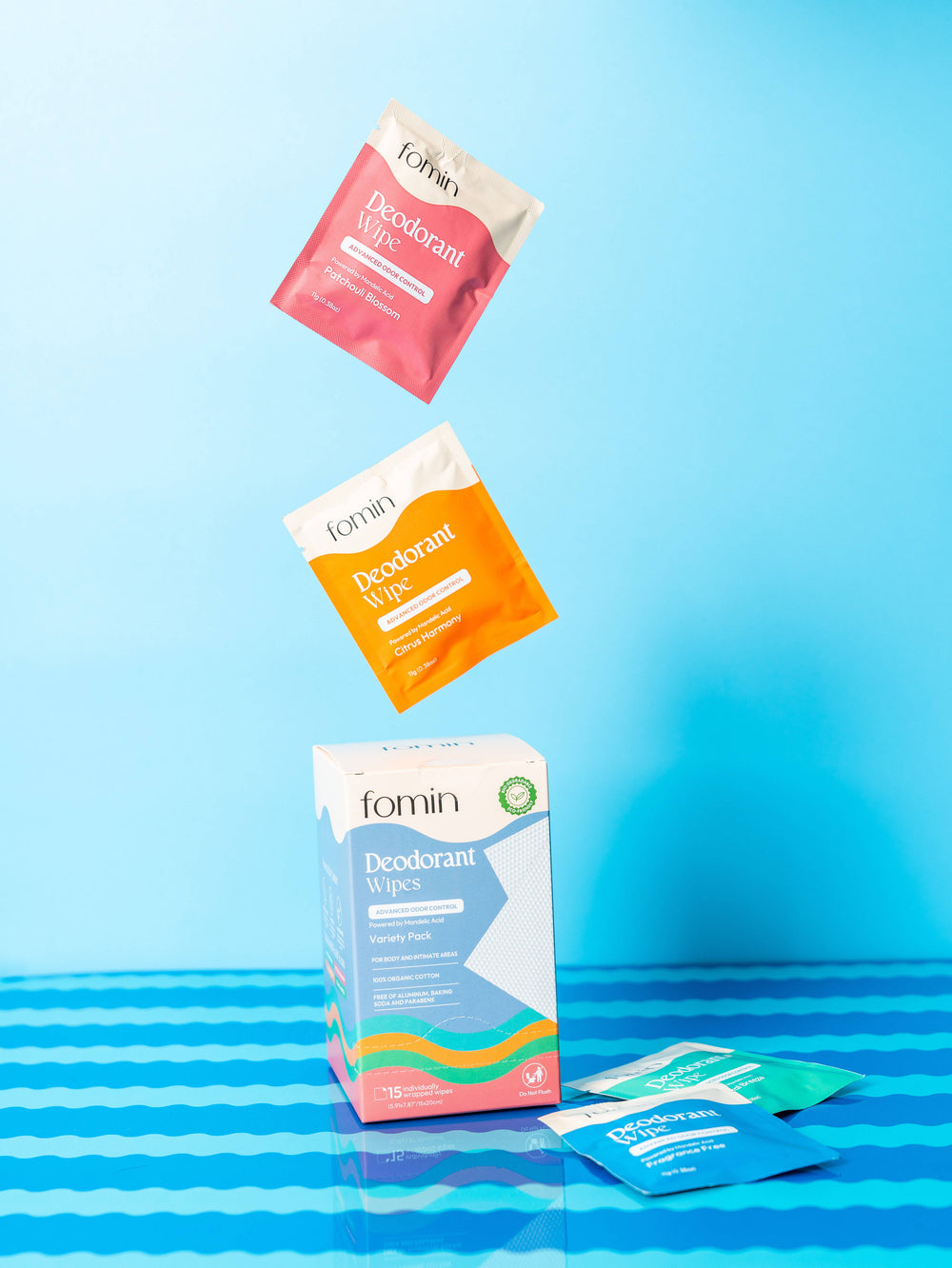
Menopause and Hot Flashes: Navigating Body Temperature Changes
Share
Although heat sensitivity in women is often linked with hyperthyroidism, menopause is also one of the major causes of hot flashes. Menopause basically is a phenomenon where a woman permanently stops having periods. This is the period when a woman’s hormone levels change drastically. Menopause is set to be completed when periods have stopped for one whole year.
There is a phase before menopause that is termed perimenopause. During this time the supply of regular eggs in a woman’s ovaries diminishes and she starts to experience irregular periods. Simultaneously estrogen and progesterone levels start declining. This decline in estrogen is the one that causes symptoms of menopause.
Hot flashes
Hot flashes are the most common symptom of menopause. About 75% of the women experience a sudden increase in body temperature during their menopause transitioning phase. For 80 to 85% of women, they experience hot flashes for around 2 years. If you are wondering what causes hot flashes in menopause, they are because of estrogen irregularity. They vary in intensity and frequency for each woman.
Aside from the increase in temperature, it can cause an increase in the heart rate of the woman. This causes sudden perspiration, as the body tries to reduce the temperature. This can happen in the form of night sweats, so there is no set time for it to happen. These flashes can cause dizziness and heart palpitations.
What happens in the body during a hot flash?
It’s common to feel a sudden surge of warmth in the upper body. Your skin can even turn to a pinkish shade where it turns red like you are blushing.
Hot flashes are completely normal. It’s just a little sensitivity from the temperature due to a decrease in estrogen levels in your body. These flashes are more of a reaction from your Hypothalamus- the part of the brain that controls temperature.
For Menopause temperature regulation, your hypothalamus gears into action to regulate the body temperature. It sends signals to your body to make it cool which causes blood vessels to dilate near the skin. So, sweating is just a way to cool down the body. You can carry deodorant wipes with you all the time, to get relief from the sweat and freshen up on the go.
Symptoms of Hot Flashes
Hot flash frequency and intensity varies among women. they can last from 1-2 minutes to 5 minutes. normally, they are mild, but sometimes they are so intense that they disrupt the daily activities. They can happen anytime day or night.
At night they happen in the form of night sweats that can wake you from sleep and cause sleep disruptions. Anyways, the frequency of hot flashes varies. However, most women experience them daily. Hot flashes in women after menopause persists for 7-10 years.
Some of the symptoms of hot flashes are:
- A warm feeling in your chest, neck, and face.
- Increase in hearbeat
- Upper body perspiration
- Blotchy skin as if blushed
- Anxiety
- Chilled feeling after the hot flash passed
Affect of Hot Flash on Internal Body Temperature
Generally, it is thought that body temperature increase due to hot flash but in actual it’s the opposite. All the sweating a hot flash cause decreases the core body temperature. Only cheeks show a slight temperature rise, otherwise overall body temperature falls a bit.
Another astounding fact is hot flash cause the increase in heart beats up to 13% on the onset of hot flash. However, it immediately slows down. Moreover, it is also studied that post-menopausal and pre-menopausal women have core temperature variations.
Post-menopausal women have lower body temperatures compared to pre ones. This is associated with slow metabolism and midlife weight gain.
Stress- A Biggest Cause of Intense Hot Flashes
Hot flashes happen after menopause and its the standard rule. However, these flashes are more intense if the stress is involved. It cause more frequent and hotter hot flashes. Stress acts the same as alcohol, caffeine, and sugar acts in speeding up the intensity and frequency of hot flashes.
What to do About Hot Flashes?
When your estrogen level decreases, your glands release a high amount of other hormones that affect the body’s thermostat. This causes fluctuations in body temperature. There are natural remedies for hot flashes that have shown progress in reducing their frequency and intensity.
Some of the ways through which you can find Menopause hot flashes relief are:
-
Black Cohosh
This herb has mild estrogen-like effects so it reduces the frequency and intensity of hot flashes.
-
Soy Isoflavones
This component also mimics estrogen and helps alleviate hot flashes. It is mostly found in soy products like tofu, edamame, soy milk, etc.
-
Flaxseed
These are rich in lignans that can help in balancing the hormones and reduce menopausal symptoms including hot flashes.
-
Sage Tea
This tea is known for its cooling properties. It can reduce excessive sweating and hot flashes.
-
Evening Primrose Oil
This oil is high in gamma-linolenic acid (GLA) which helps in balancing the hormones and associated hot flashes.
Hot flashes are nothing to be embarrassed about. All you need is some eco-clean towels or deodorant wipes in your bag so you can freshen up on the go. However, if the situation worsens and starts affecting your everyday life, then you can take medical advice.
Building a Plastic-Free Future: Fomin's Commitment to Driving Sustainability
In an era where plastic pollution has become an alarming global issue, it is crucial to seek innovative solutions to reduce its devastating impact on our oceans and ecosystems.
Annually, an astounding 8 million metric tons of plastic waste goes into our oceans, endangering marine life and the sensitive equilibrium of biodiversity on Earth. Fomin, a pioneer in sustainable initiatives, has driven the movement toward a plastic-free planet.
By purchasing Fomin's eco-friendly cleaning products like dishwasher detergent tablet etc., you actively participate in the battle against plastic pollution. Join our loyalty program to participate in building a sustainable future - one where plastic is not a threat but a relic of the past.
FAQs
What causes hot flashes during menopause?
Estrogen level decreases during menopause which causes hormonal imbalance and hot flashes.
How long do hot flashes last during menopause?
They normally last for 2 years during menopause. They start at least 1 year before the actual menopause.



